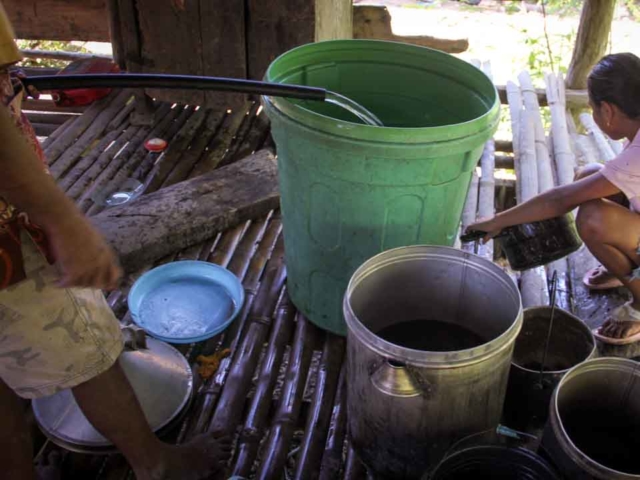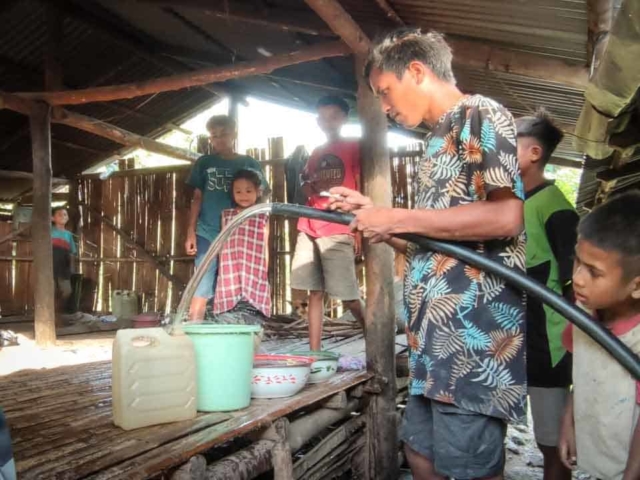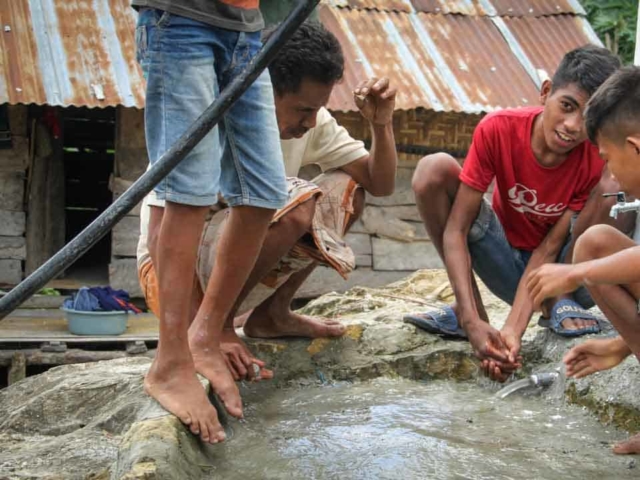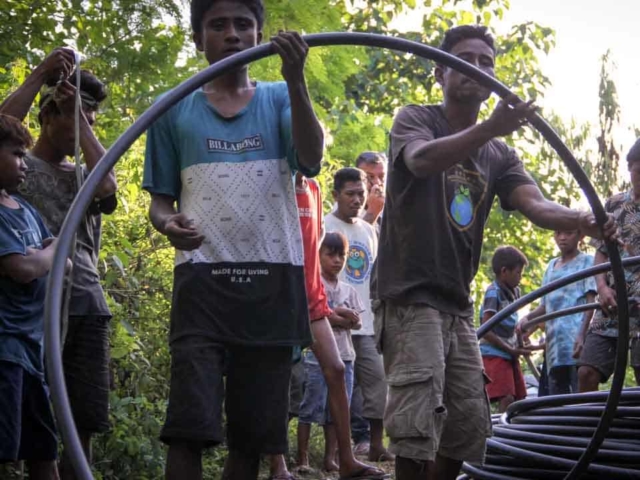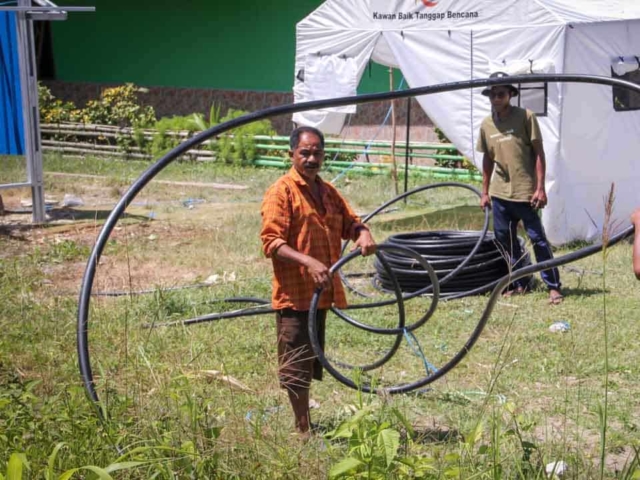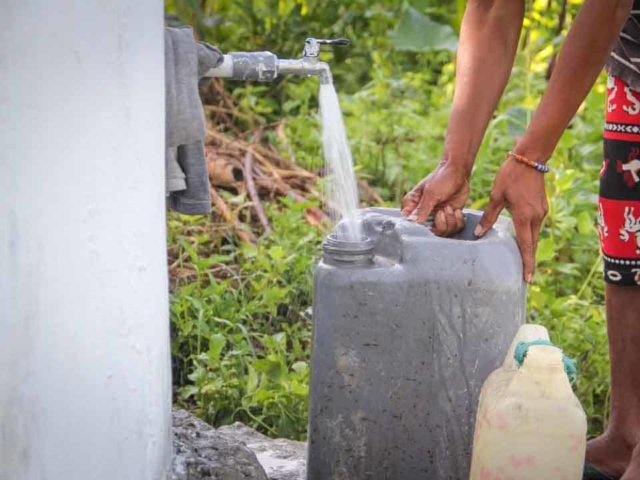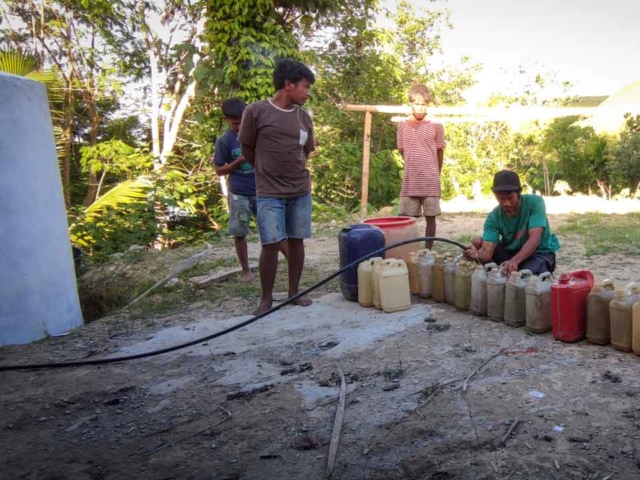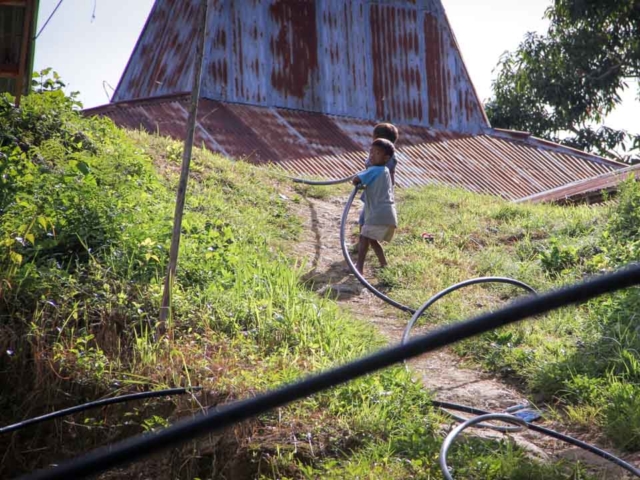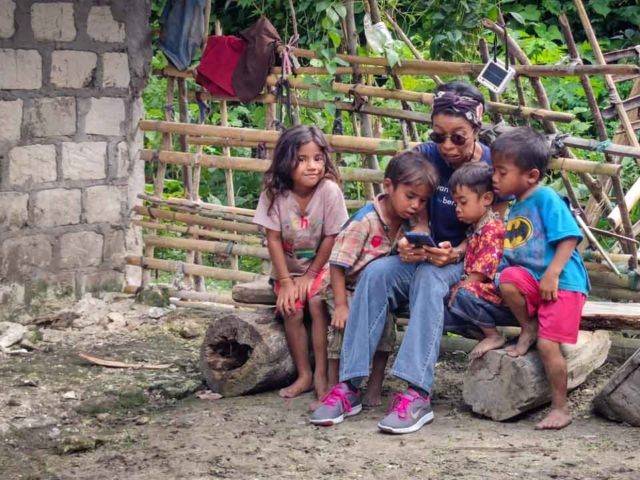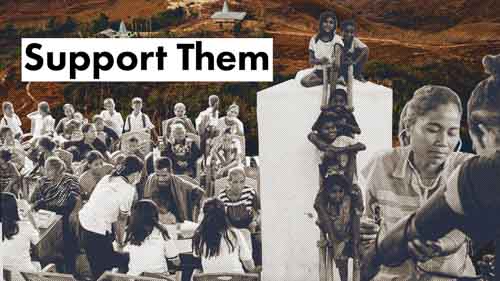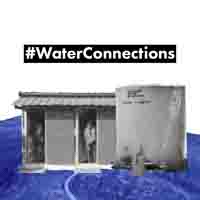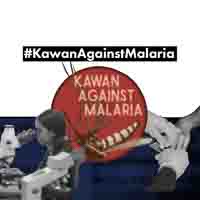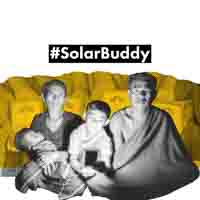The millions of hours women and children spend every day in their rural villages fetching water are a colossal waste of precious time.
When there is no water on-site, and you have to fetch it from far away, where we work but also in many other places in the world, it is mainly women and children -primarily young girls- who take their time and miss opportunities.
Hello, this is Alex. How are you today? First, I would like to start this article by saying this, if you allow me, kawan.
“-Accessing water is as simple as turning on a tap for many of us. We pay a bill that arrives in our mailbox, and water will always be available for the whole family. It is clear, clean and abundant, so we never have to manage it to quench our thirst, cook, shower, bathe the children, wash our hands, clean the house, irrigate the crops and water the livestock.”
For all the women in the ultra-rural areas of eastern Indonesia, the opportunity costs of water collection are high and have far-reaching implications. Having to fetch water drastically reduces the time they can spend with their families, looking after their children, doing household chores or even practising hobbies.
For children, water collection here often interferes with studies, even preventing them from going to school, as we can see here in eastern Indonesia.
Today, nearly 95% of family farms in rural areas of East Sumba do not have access to water. As a result, women and girls travel up to two and a half hours round trip to fetch water for basic needs.
As we also see, collecting water can harm the whole family’s health, especially children’s. Most of the water sources here are not clean. And even if the water comes from a safe source, the fact that it is transported and stored increases the risk that it will be contaminated before it is drunk.
The risk of diarrheal disease is increased as a result; they are the fourth leading cause of death in children under five and a major cause of chronic malnutrition or stunted growth, a scourge affecting 159 million children worldwide.
Every year when we continually build “Water Connections“, hundreds of children under five die of diarrheal diseases due to poor sanitation, poor hygiene or the contaminated water they drink.
“Wherever you look, access to clean water is changing people’s lives...”
The needs are precise, and the objectives are too. Women and children should not have to spend so much time on this fundamental human right.
The Clean Water Connections that Fair Future and Kawan Baik are creating in the ultra-rural areas of East Sumba reduce women’s workload and time spent on water collection methods. Therefore, it gives them more time to focus on other activities, such as creating a garden and growing vegetables.
In doing so, they produce crops which become more significant and of better quality to sell, and family members consume more vegetables and drink clean water.
Thank you very much for your interest Kawan.
We wish you a beautiful day wherever you are. Remember to take care of yourself and everyone you love. It is the most important.
Alex – Fair Future Foundation – 24.01.2023, Rumah Kambera.
We’re changing that, we’re bringing water into homes
Clean and healthy water is distributed almost everywhere now here in Mbinudita, East Sumba.
People are happy, and It’s a significant change in their life. They also have to get used to living with clean water to change their habits. Imagine: Having lived a life without having access to toilets, without having access to clean water, and being constantly sick… You have to get used to feeling better now and having more time for yourself. Change your habits? This is where the most significant challenge lies.
This clean and healthy water supplies more than thirty reservoirs and twenty healthy sanitary facilities. All for the benefit of more than 2,500 people, nearly 65% of whom are children. The “water connections” program, by the villagers of #mbinudita, the Fair Future Foundation and Kawan Baik Indonesia teams, aims to provide access to clean, healthy and non-lethal water to communities living in the most isolated regions of Indonesia. This program started in East Sumba, Mbinudita village, more than eighteen months ago. Today more than thirty water tanks between 3500 and 6500 litres have been built, as well as more than twenty sanitary toilets.
—–
Water connections? It is also nearly 7,000 meters of pipes that our teams – with the help of the villagers – have buried and which connect each of the installations built from the deep boreholes that we have made. As a reminder, the consumption of dirty water is the leading cause of illness and death, especially among vulnerable people and young children. Thus, giving them access to a source of clean water, healthy in quantity and quality, will provide them with access to better health, a better quality of life and, for parents, income through the sale of vegetables from their gardens, for instance.
By the way, do you know what Kawan Baik means? Nope? So click here to find out Kawan!



